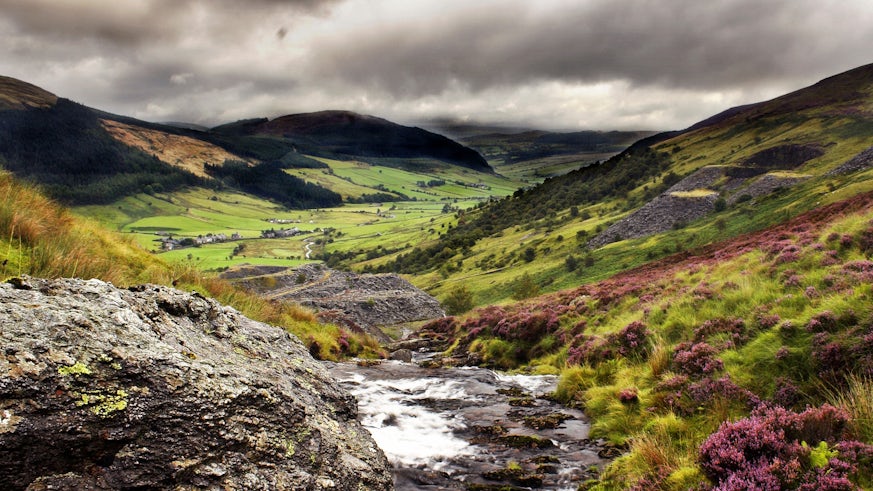Innovative partnership protects river ecosystems
13 July 2020

A partnership which helps protect freshwater ecosystems by shaping Government policy has been recognised for its innovative approach to sustainable water management.
A long-standing collaboration between Cardiff University, Welsh Government and Dŵr Cymru Welsh Water (DCWW) has harnessed Cardiff’s research expertise to develop new ways of managing waters and catchments.
Led by Professor Isabelle Durance, School of Biosciences, an interdisciplinary Cardiff team measured and modelled variation in river ecosystems to show how future land use changes and climate change can affect freshwater biodiversity.
The researchers developed a full understanding of the link between catchment management, river biodiversity and the sustainability of services that healthy freshwater ecosystems can provide, such as clean water or fish..
Cardiff’s long-term expertise and datasets were key to lead the freshwater component of the Biodiversity and Ecosystem Service Sustainability (NERC-BESS, 2011-2017) strategic programme – the first national research programme of its kind in the world.
Cardiff led the £3.1m Diversity in Upland Rivers for Ecosystem Service Sustainability (DURESS) project (2012-15), tasked to quantify the ‘missing link’ between landscape decisions, river biodiversity and sustainability.
Professor Durance who leads the interdisciplinary Cardiff Water Research Institute, said: “We are delighted that our work has been recognised for its innovation. Our holistic ecosystem approach – and the set of tools and concepts we have gathered – helped inform government policies such as the Environment (Wales) Act 2016. The project and its findings will have a long-lasting legacy, improving biodiversity and freshwater quality in Wales, the wider UK and internationally.”
Peter Perry, Chief Executive of Welsh Water, said: “Professor Durance and the Cardiff University team are now supporting the business on a wide range of research and other projects. Specifically they are supporting our catchment management work targeting both improved water quality, biodiversity, sustainable land management and developing nature-based solutions.”
The partnership also informed DCWW’s decision to launch the Beacons Megacatchment Partnership to work with upland land managers on a nature-based approach to improving water quality in the National Park area which supplies almost half the company’s water.
Environment Minister Lesley Griffiths said: “We are delighted the work of Professor Durance and her team is being recognised by the University. The research work, tools and techniques developed by Cardiff allowed Wales to adopt an ecosystem services approach at the heart of the Environment (Wales) Act, putting Wales at the forefront of environmental legislation in the UK.”
The Cardiff research has also been adopted internationally. It played a significant role in the establishment of the Cubango-Okavango River Basin Fund, an independent $250m fund to enhance livelihoods, improve ecosystem resilience and provide equitable benefits to the countries who share this unique UNESCO site.
The collaboration is one of six partnerships recognised for innovation impact by Cardiff University in 2020 – and is being showcased as part of Cardiff’s growing work on innovation nationally and internationally.
Share this story
Learn how our cutting-edge research, technology transfer, business development and student enterprise drive our vision.


